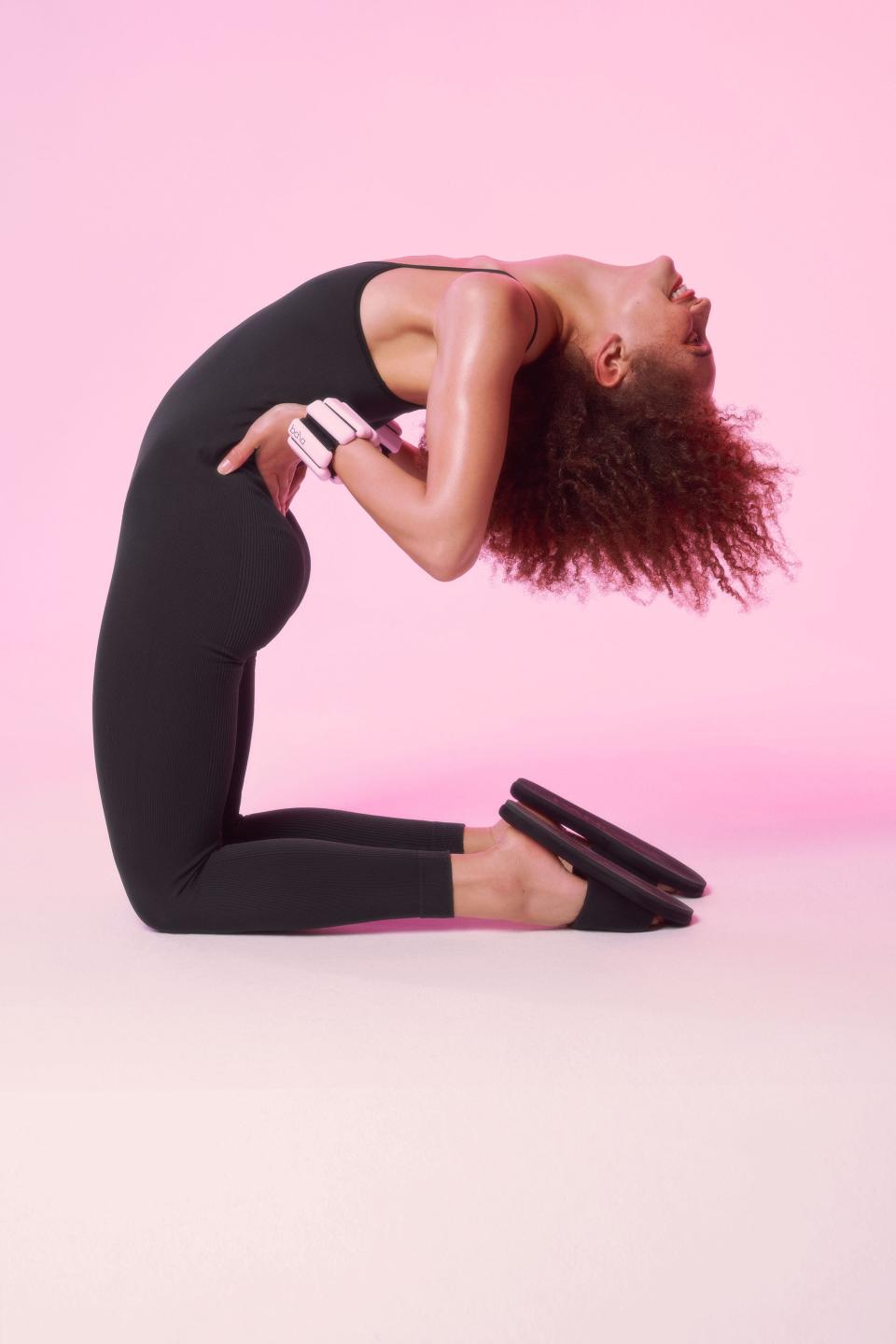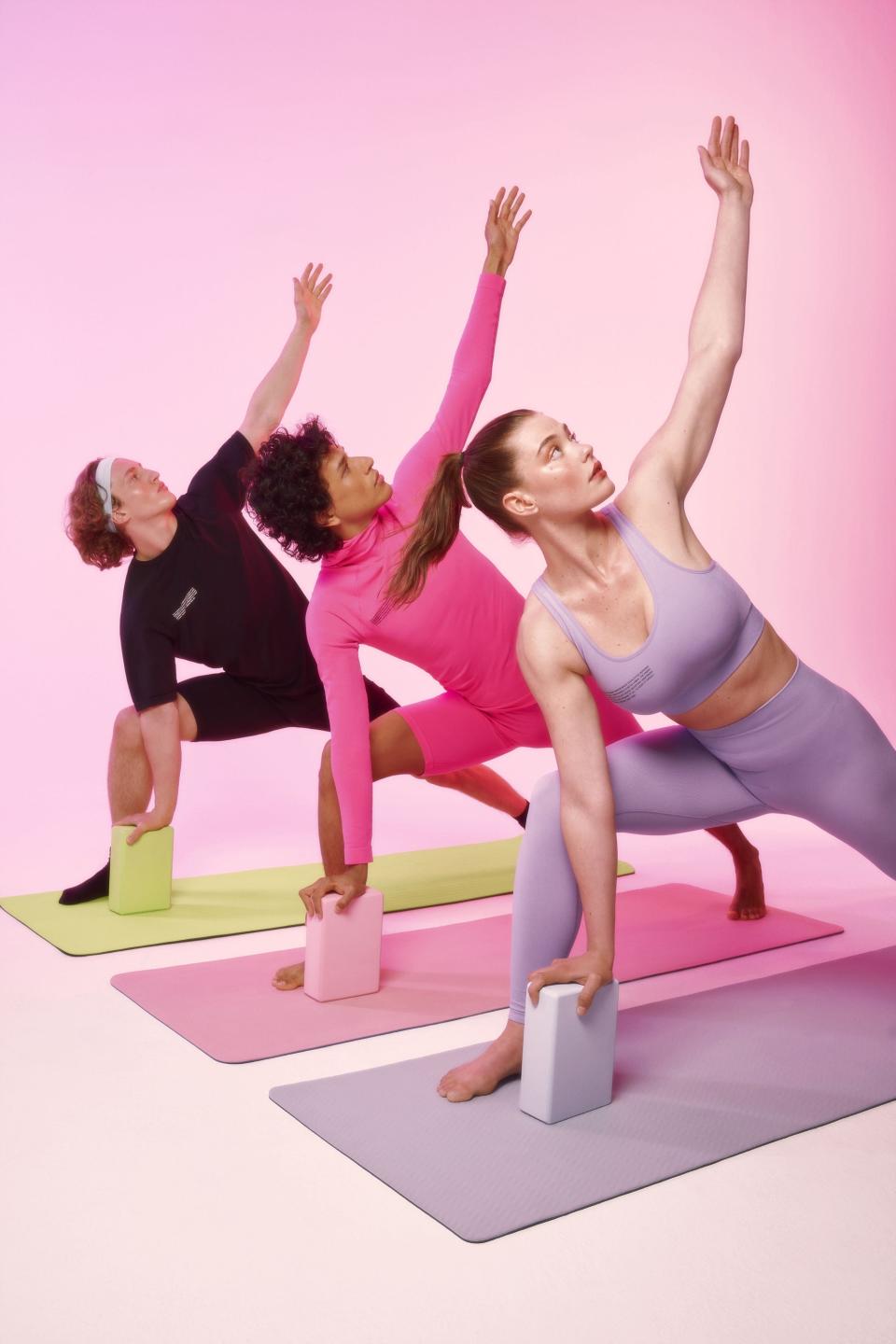Pangaia’s First Activewear Collection is Made From Plants, Not Plastic
As leggings, hoodies, bike shorts, and other stretchy athleisure took over our wardrobes in 2020, one question kept coming up: Where are the sustainable options? All of that stuff is plastic, plain and simple. Polyester, nylon, Spandex, and Lycra are derived from fossil fuels, require significant resources and energy to produce, and never biodegrade. Recycled fibers are often billed as the “sustainable solution”; brands tout their leggings as being made from recycled plastic bottles, while others have made recycled synthetics a key part of their sustainability marketing. But even if recycled fibers are an improvement, one big issue still remains: Any synthetic garment, virgin or recycled, will release microplastics as you wear and wash them. The tiny bits and pieces of plastic are toxic to marine life and may account for up to 21 million metric tons of plastic pollution in the ocean. To make matters worse, materials tend to weaken as they’re recycled, which means your recycled poly leggings may actually release more microplastics than a virgin pair.
“When you recycle PET into fibers, especially for something that is high-wash like activewear or swimwear, you’re just putting that plastic back into the ocean,” explains Dr. Amanda J. Parkes, Pangaia’s chief innovation officer. “Scientifically, it is the exact wrong thing we should be doing—it’s just exacerbating the problem. We should be recycling those plastic bottles into construction equipment or something that will last 50 years, and sink the carbon that way.”
Naturally, recycled plastic or poly wasn’t on the table when Dr. Parkes and her team began developing Pangaia’s first activewear collection. Instead, Pangaia Gym’s leggings, cycling shorts, T-shirts, unitards, and sports bras are 90% bio-based. Dr. Parkes described it as “a first step” towards truly natural, renewable activewear: The fibers are made from a blend of eucalyptus and seaweed; bio-based nylon, a fossil fuel-free stretch fiber made from castor oil; Roica V550, a stretch yarn that degrades by microorganisms over five years; bioWick, a bio-carbon and bio-based wicking treatment made from microalgae; and PPRMT, a bio-based odor-fighting finish and antimicrobial treatment.

Dr. Parkes says the “breakthrough” of this project isn’t any one of those fibers or treatments, but the way Pangaia’s scientists managed to blend them together and make them work in harmony. “Sometimes a brand will say they use this bio-based fabric, but the wicking treatment is incredibly toxic,” she explains. “We had to be super meticulous and work across different mills and fabrics and treatments to make this work in the most responsible way.”
The results are bright, ultra-soft, and ’80s-inspired clothes for everyday movement; they aren’t meant to replace your marathon gear or super-compressive leggings. “This is fun and lighthearted—it isn’t about competition,” Dr. Parkes says. The same is true of Pangaia’s broader strategy: All of its materials and technology are available to other brands so the entire industry can move towards better practices, not just Pangaia. In 2019, it introduced FLWRDWN, a biodegradable and cruelty-free alternative to goose down or synthetic fill, and it’s now being adopted by other fashion and interiors brands.
Pangaia Gym will appeal most to the designers and brands who are already using cotton or Tencel in their activewear in an effort to avoid synthetics. It's the stretch fibers that are the real differentiator: Most natural-fiber leggings still need to have a bit of Spandex or Lycra, a compromise Dr. Parkes describes as “a monster’s hybrid,” where the bio-based material is “sunk” into the synthetic and is no longer biodegradable. She says Pangaia Gym’s bio-based nylon still isn’t the perfect solution—that will come next year, when Pangaia and its partner Kintra unveil their 100% biodegradable corn- and wheat-based polyester—but it still plays nicely with the other bio-based fibers and treatments. “We’re keeping things in the same cycle, even if it isn’t perfect yet,” she says. “This is a ‘do no harm’ strategy. We’re working towards the ideal.”
Until then, Pangaia Gym is arguably today’s best option for plastic-free, plant-based activewear. Shop the full collection on June 29.

Originally Appeared on Vogue

